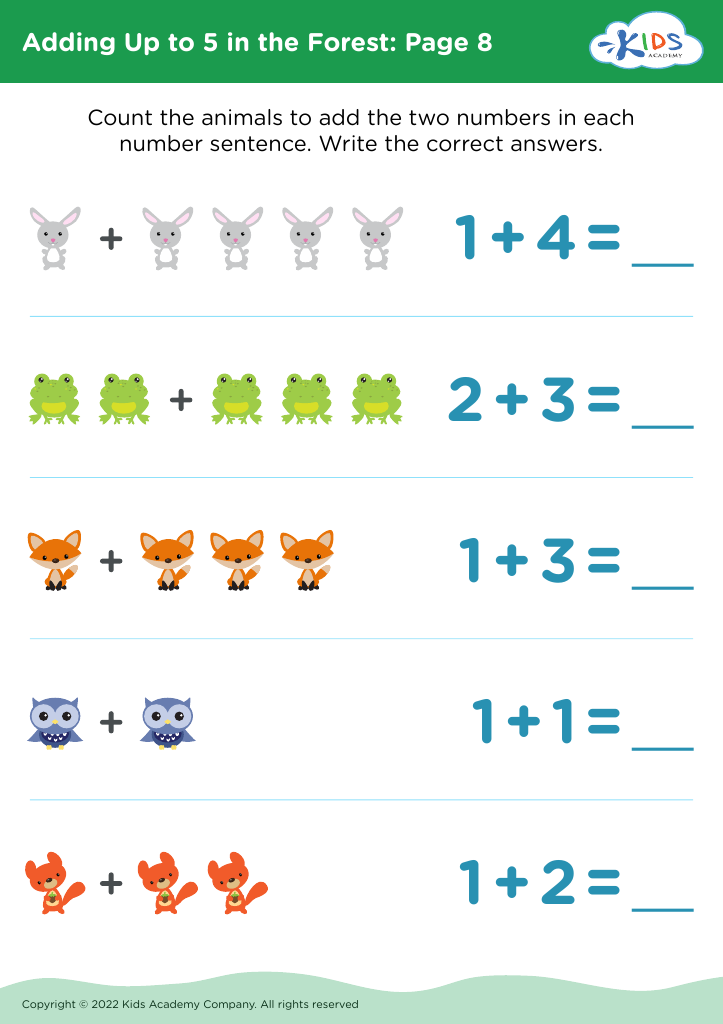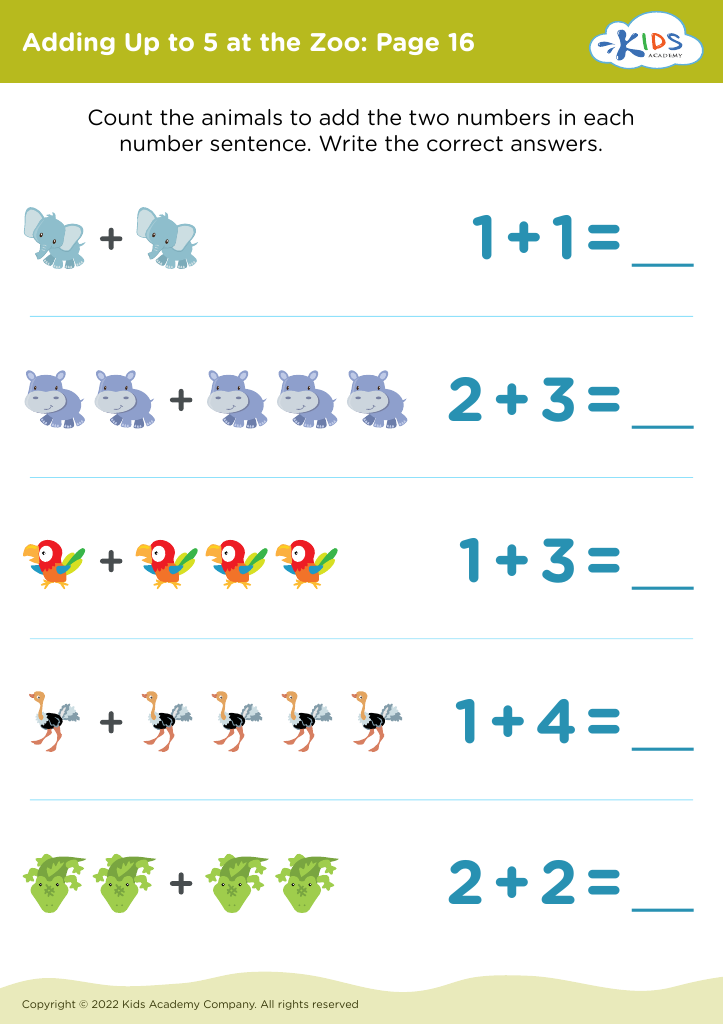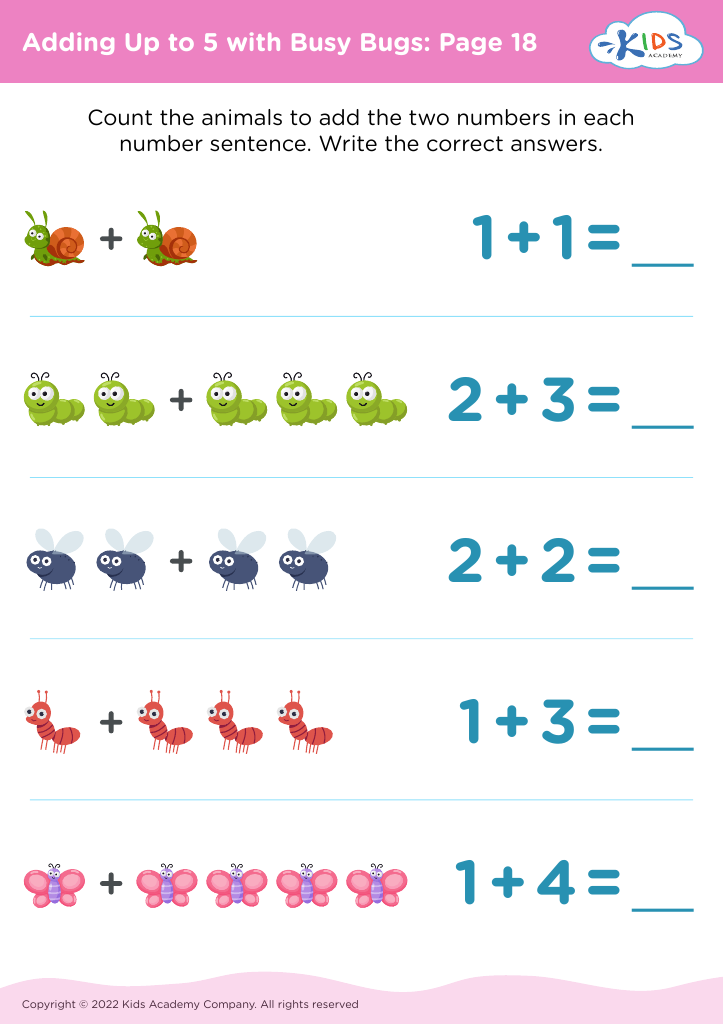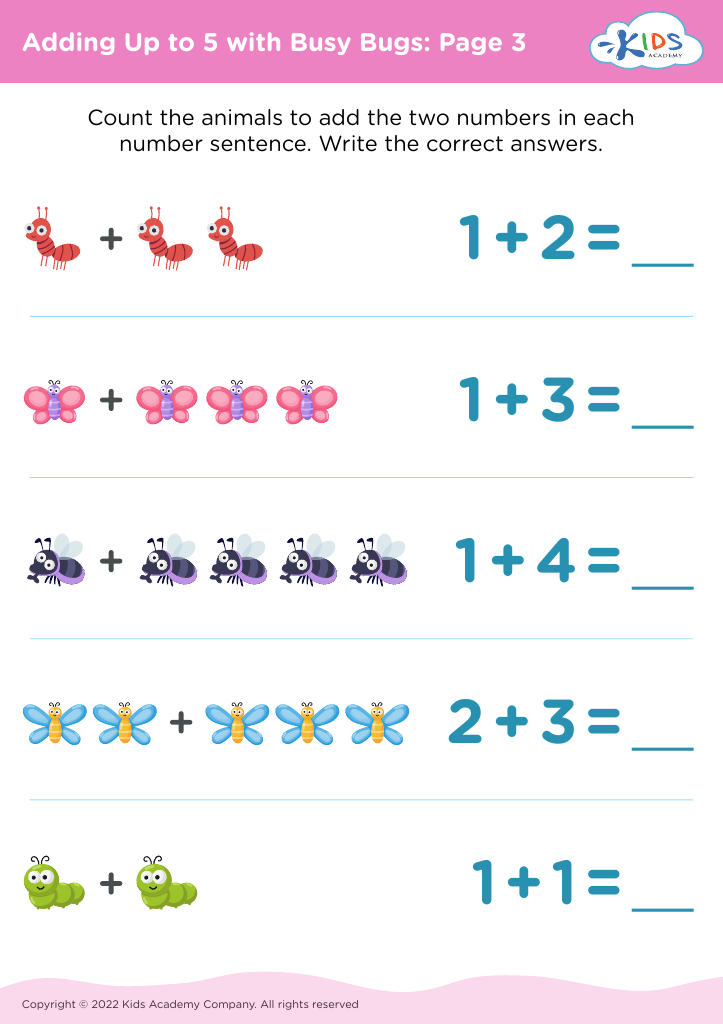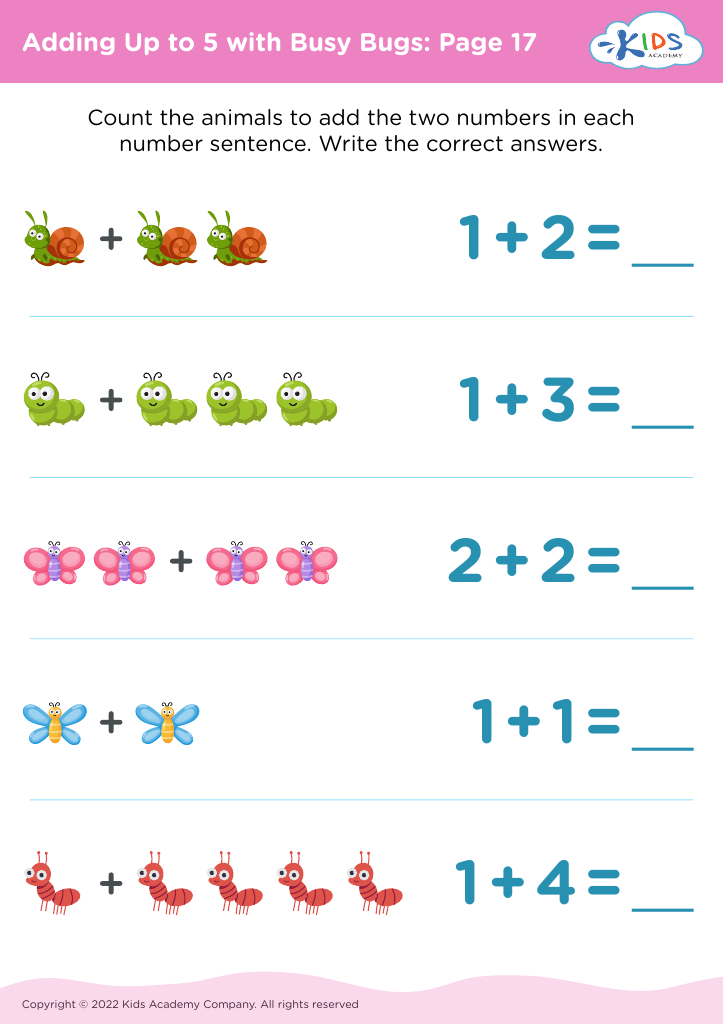Developing Concentration Addition Worksheets for Ages 3-8
5 filtered results
-
From - To
Explore our engaging "Developing Concentration Addition Worksheets" tailored for children aged 3-8. These worksheets are designed to enhance focus and concentration while introducing basic addition skills in a fun and interactive way. Each activity incorporates colorful visuals and playful themes, making math enjoyable for young learners. By practicing their addition skills through these thoughtfully created exercises, children will not only improve their mathematical ability but also boost their concentration levels. Ideal for both classroom and home use, our worksheets provide a balanced approach to learning, helping young minds stay attentive and motivated. Start nurturing your child's math skills today!
Developing concentration in young children, particularly during addition activities for ages 3-8, is crucial for several reasons. First, early mathematical skills form the foundation for future academic success; strong concentration helps children engage fully with learning, enabling them to grasp basic concepts like addition. As they focus, they can understand number relationships and develop problem-solving skills, laying the groundwork for more complex math later.
Furthermore, concentration plays a vital role in improving various cognitive abilities. When children concentrate, they enhance their attention span, critical thinking, and reasoning. These skills not only apply to mathematics but also to reading and other subjects, providing a holistic boost to their educational journey.
Additionally, nurturing concentration habits early can mitigate potential behavioral issues. Young children often struggle with attention, and structured activities that require focus can help manage impulsivity and restlessness, leading to a more positive learning environment.
Parents and teachers should view these addition activities as a dual opportunity: to teach math skills and to foster essential concentration techniques that will benefit children throughout their education and life. Incorporating engaging, developmentally appropriate strategies encourages a love for learning, making it enjoyable as well as educational.

